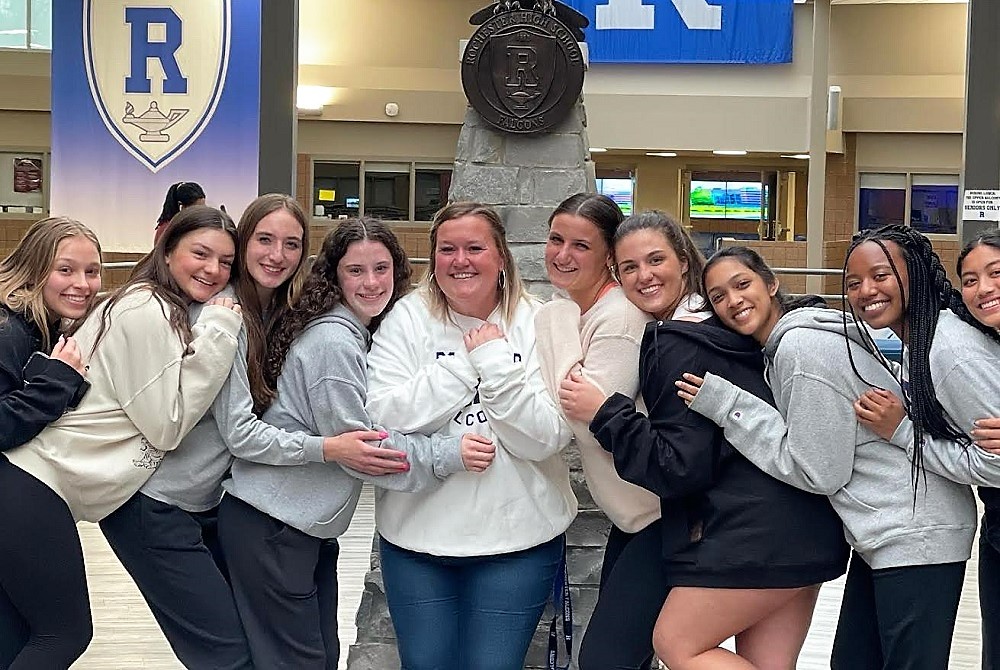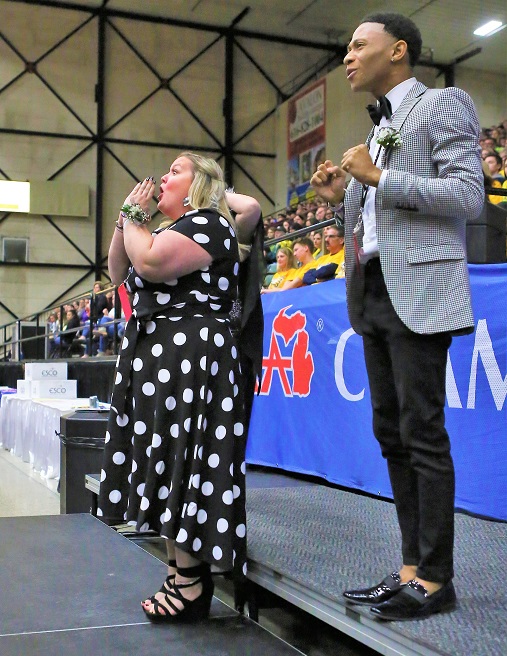
Nonfaculty Coaches
June 18, 2012
Since the so-called heyday of school sports in the 1950s, when you could count on more talk in a community about its few high school teams than about all the college and professional sports teams in the country combined, some things have improved – diversity and safety, for example; but some things have not met the high ideals hoped for in educational athletics.
During the explosive growth period of school sports in the 1970s and 1980s, when girls programs were introduced or reintroduced to schools and well-established community programs were added to the school sports curriculum, schools in almost every state had to backpedal from the ideal that only trained educators – certified teachers – could coach interscholastic athletic teams. (In Michigan, except for two years in the mid 1950s when certified teachers were required, the rules only urge that coaches be certified teachers.)
While the number of sports and levels of teams have greatly expanded these past five or six decades, the coaching pool within the faculty of a school district has not. Furthermore, teachers’ salaries improved so much that coaching stipends became less necessary to supplement teachers’ incomes, so teachers “volunteered” less readily to serve as coaches for a second and third sport.
Moreover, the coaching demands for one sport increased out of season, interfering with a person’s availability to help coach second and third sports during the school year. This was commonplace in the sports that moved from the community into schools, but the out of season demands have increased significantly for traditional school sports as well.
There is irony that community youth sports programs not only have provided school districts with a pool of informed and interested people to serve as coaches, but they have also increased the demands on coaches so much out of season that coaches must specialize in a single sport and therefore are less available to assist with the many different sports and levels of teams that school districts struggle to provide students.
It is estimated now that more than half of all high school coaches do not work in the school building where they coach, which can create communications challenges for schools. A smaller but growing number of high school coaches do not work at all in the field of education, which can create philosophical problems as well. Not always, of course; in fact, many nonfaculty coaches are a rich and increasingly indispensible blessing for school sports.

Koehler Gives State Power Rochester Another Championship-Caliber Leader
By
Keith Dunlap
Special for MHSAA.com
December 8, 2022
ROCHESTER HILLS – Understandably, Rochester competitive cheer head coach Samantha Koehler might not know exactly the emotions she will feel Friday.
 After all, the occasion will mark a first in more than four decades with a Rochester program that’s historically been considered the gold standard in the state.
After all, the occasion will mark a first in more than four decades with a Rochester program that’s historically been considered the gold standard in the state.
When the Falcons compete at their first competition of the season at Troy, it will be the first time since 1981 that somebody other than the legendary Susan Wood will be at the helm of the program.
“Even with a change in leadership, we’re eager to show the world that Rochester cheer is back and better than ever,” Koehler said.
While there will probably be some nervousness, it also might be a relief to actually get into competition mode after an offseason of transition.
Following Rochester’s fifth-place finish in March at the Division 1 Final, Wood announced her retirement after 41 years as head coach.
All Wood (formerly Susan McVeigh) did during her tenure was lead Rochester to 14 MHSAA Finals championships and three runner-up finishes between 1994 and 2017.
She also led Rochester to five Michigan Cheerleading Coaches Association state titles and three runner-up finishes before competitive cheerleading became an MHSAA-sponsored sport in 1994.
In 36 out of 41 years with Wood in charge, Rochester competed in Finals of either MHSAA or MCCA state tournaments.
But rather than look at this as having to replace an irreplaceable legend, Koehler is looking at it as a chance to continue Rochester’s rich tradition – and such an opportunity was simply too good to pass up.
 “Yes, this position comes with a lot of high expectations and pressure,” Koehler admitted, while also praising the parents and team members who have helped make the transition easier. “But like George S. Patton, Jr. once said, pressure makes diamonds.”
“Yes, this position comes with a lot of high expectations and pressure,” Koehler admitted, while also praising the parents and team members who have helped make the transition easier. “But like George S. Patton, Jr. once said, pressure makes diamonds.”
Koehler has had plenty of success as well, having spent the last seven years as head coach at Plymouth High School, where she was named Michigan cheer Coach of the Year in 2020 after leading Plymouth to a runner-up finish in Division 1.
She also has served as the head cheerleading coach at Wayne State University and on the board for the state coaches association.
“We wanted somebody with experience that coached at a high level and had success at a high level, because that’s where we are,” Rochester athletic director Dean Allen said. “The bar is high, and keep it there. Just keep Rochester cheer as the preeminent program in the state of Michigan. That was our goal.”
Allen said the biggest challenge has been for Koehler to balance out bringing in her own ideas, but also maintaining traditions that have made the program what it is.
So far, so good.
“She’s been able to do that,” Allen said.
While the last few months have been all about getting to know her new team and community, the coming winter will be about trying to get Rochester back on top at the Finals in March.
The Falcons haven’t won Division 1 since 2017, and have seen city rivals Stoney Creek (in 2019) and Rochester Adams (2020 and 2021) claim the last three championships between them.
“We are fortunate enough to compete against two of the best teams in the state frequently throughout the season,” Koehler said. “Competing against Adams and Stoney betters our program by motivating athletes and coaches to be the best we can be each and every day. With such a talented and dedicated group of athletes, we are excited and eager to challenge our city rivals for that state championship.”
 Keith Dunlap has served in Detroit-area sports media for more than two decades, including as a sportswriter at the Oakland Press from 2001-16 primarily covering high school sports but also college and professional teams. His bylines also have appeared in USA Today, the Washington Post, the Detroit Free Press, the Houston Chronicle and the Boston Globe. He served as the administrator for the Oakland Activities Association’s website from 2017-2020. Contact him at [email protected] with story ideas for Oakland, Macomb and Wayne counties.
Keith Dunlap has served in Detroit-area sports media for more than two decades, including as a sportswriter at the Oakland Press from 2001-16 primarily covering high school sports but also college and professional teams. His bylines also have appeared in USA Today, the Washington Post, the Detroit Free Press, the Houston Chronicle and the Boston Globe. He served as the administrator for the Oakland Activities Association’s website from 2017-2020. Contact him at [email protected] with story ideas for Oakland, Macomb and Wayne counties.
PHOTOS (Top) Samantha Koehler, middle, is taking over the Rochester High competitive cheer program this season. (Middle) Koehler, with her Plymouth assistants, coach their team during the 2020 Division 1 Final. (Top photo courtesy of Dean Allen/Rochester Athletics. Middle photo by Hockey Weekly Action Photos.)

